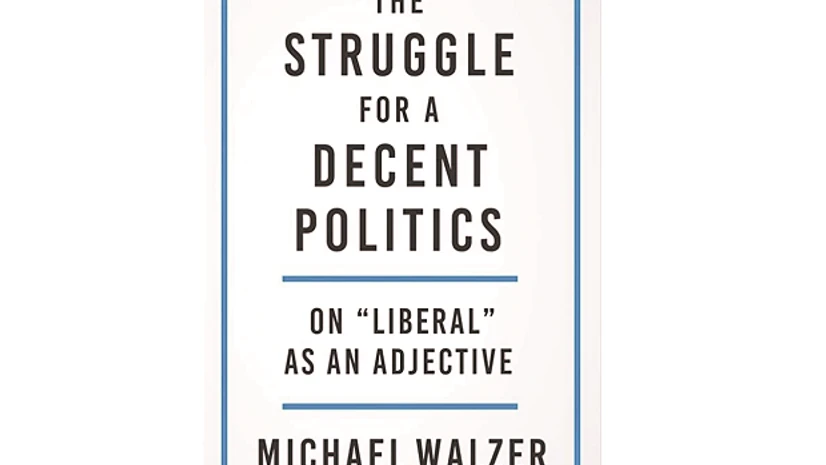THE STRUGGLE FOR A DECENT POLITICS: On “Liberal” as an Adjective
Author: Michael Walzer
Publisher: Yale University Press
Pages: 176
Price: $30
Also Read
We seem unable to live without the word “liberalism,” but can’t agree on what it means. Does it describe an ideology — or something fuzzier? If the first, Alexis de Tocqueville in 1840, William Gladstone in 1880 and Franklin D Roosevelt in 1932 would have disagreed violently about what that programme was. One minimal definition, at least as it applies to liberal democracy, is that liberalism seeks to preserve political and economic liberty within a majoritarian framework. Liberals, in Isaiah Berlin’s language, care more about the “negative” principle of freedom from restraint than the positive one of forging a more just society.
If that’s so, then a figure like the political philosopher Michael Walzer, a socialist committed to a deep transformation of American society, cannot rightly be called a liberal. But in his new book, Walzer has concluded, as he says in the subtitle, that “liberal” operates not as a noun — a doctrine — but as an adjective, describing a state of mind common to people who think of themselves as liberals: “Open-minded, generous and tolerant.”
Walzer does, in fact, strike a more personal note than usual. He tells us that he wrote The Struggle for a Decent Politics during the pandemic without access to his library. This is an un-bookish book filled with anecdotes from his life as an engage intellectual, a long-time editor of the leftist magazine Dissent, a signer of statements and joiner of marches. The personal narrative helps us locate the author in his own time: At 87, Walzer is much too young to have lived through the brutal sectarian wars of the 1940s and slightly too old for the euphoric and utopian politics of the 1960s. He reached maturity in a calm interval; perhaps his extreme fair-mindedness and gentlemanly calm is generational as well as personal.
The task Walzer sets himself here is to apply the “liberal” adjective to the doctrines he has been enmeshed with for the last 60 years: Socialism, nationalism, feminism, communitarianism and so on. He explores the restraints that the liberal outlook imposes on these programmes; his overarching goal is to demonstrate that those restraints do not impede, and in fact ultimately enable, the achievement of the supreme goods of justice, equality, liberty and democracy itself. In the era of kings and tyrants, Walzer notes, losers in the struggle for power were typically exiled or killed; the acceptance of political difference in liberal democracies, allowing the losers to go home and try again later, serves as a mechanism of “disaster avoidance.” A liberal politics contains difference.
That’s the idea, anyway, but we live in a world in which the illiberal right — and increasingly the left — no longer accept difference as legitimate. Walzer’s greatest contribution to the literature of liberalism-in-peril is his acute sensitivity to the tension between liberalism and the urgent demand for change from socialists, feminists and others.
Walzer refuses to accept that “liberal” is a euphemism for “not radical.” A “liberal socialist,” he argues, is not a socialist who has given up on the process of transformation, but rather one who will not accept cruelty and repression as the price to be paid for that transformation. A liberal does not say, as a Leninist would, that we must be prepared to sacrifice this generation for the good of the next. Of course, Walzer writes, real social change requires discipline and even suffering, but these must be voluntary rather than imposed. Liberals insist on “a decent politics.”
One of the strongest pieces of evidence that liberalism is a set of moral habits rather than a political programme is that its greatest exponents, like Berlin or John Stuart Mill or Benjamin Constant, conduct their arguments with a sense of fairness, an openness to being wrong, an insistence on the scalpel rather than the blunderbuss. So, too, Walzer. In writing about liberal feminism, for example, he notes that he had once regarded attacks on the patriarchal family as misguided; change the society, he thought, and then the family will change too. Then, he writes, he listened to his feminist colleagues and concluded that “the subordination of women begins in castles and homes” and then extends to the larger society. That is undogmatic liberalism in miniature.
But Walzer listened so much and no further, for this feminist claim, he goes on to note, collides with the multicultural respect for difference. These conflicting goods have to be adjudicated in a way that would vex many feminists as well as “hard multiculturalists.” We must, Walzer writes, “distinguish among different degrees of misogyny and different types of state intervention.” A liberal feminism would not restrict the right of a Muslim woman to wear a head scarf, as France does; it might, though, prevent her from wearing a face-covering burqa in a setting where she needed to be seen and heard, like school. Making fine distinctions is itself a hallmark of Walzer’s liberalism.
I remain unconvinced by some of Walzer’s claims. He deprecates calls for “participatory democracy” as a modern version of Rousseau’s deeply illiberal “civic republicanism,” in which citizens sacrifice their private lives to become full-time participants in public life; that is not at all what its advocates have in mind. And I still wonder if you can be a liberal radical. A temperamental fair-mindedness and a willingness to accept the verdict of majorities with whom one disagrees tend to set one adrift from radical confederates.
©2023 The New York Times News Service

)
